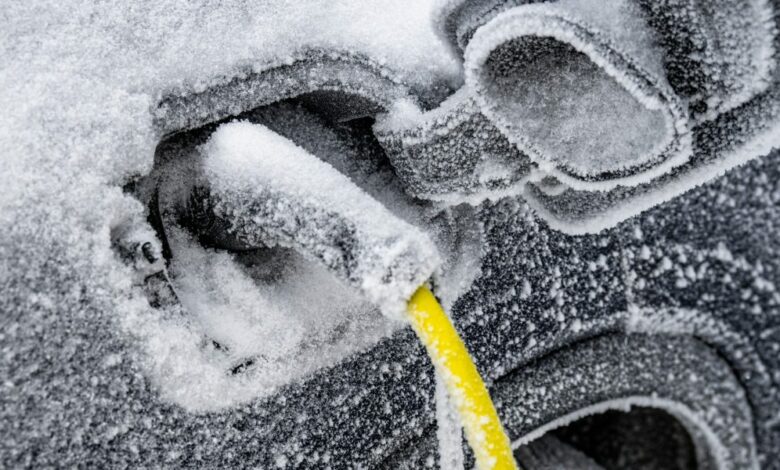As Norway approaches EV milestone, drivers in Ireland fall prey to ‘misinformation’


The EV winter is continuing to take a grip on the global car market, as high prices and poor infrastructure continue to put off the next wave of electric customers. Norway though, doesn’t appear to have gotten the message.
The wealthy Scandinavian country is close to cracking a major milestone in EV uptake as electric-powered cars come for the mantle of petrol engines and new car registrations overwhelmingly favor EVs.
But in EV laggard zones like Ireland, falling sales suggest a turning point in sentiment toward the cars, which has even led to the spread of misinformation among skeptical drivers.
Norway winning EV battle
After a wave of incentives to encourage drivers to make the shift, it is possible that the number of EVs on Norway’s roads could exceed the number of gas cars by the end of this year, making it the first country to make the transition, according to analysis from Reuters.
There were 689,000 electric-powered private cars registered on Norwegian roads in 2023, compared with 761,000 petrol cars, according to data from Statistics Norway.
There are more than 1.07 million diesel-powered cars in Norway, as well as 362,000 hybrid cars.
But momentum continues to shift toward electric cars, despite a global slowdown casting gloom on major EV makers like Tesla.
Nine out of 10 cars sold at the start of the year in Norway were battery electric vehicles (BEVs), Clean Technica reported.
Norway’s impending milestone is an inspiring success story for EV acolytes, but it’s the result of a generous strategy that won’t easily be replicated in other European countries.
The country has been able to leverage some of its $1.6 trillion sovereign wealth fund to provide generous tax breaks to drivers while also beefing up its electric infrastructure.
These have included the removal of import tariffs on EVs and an exemption on Norway’s 25% VAT charge, as well as subsidies on toll road charges.
Norway also set up incentives for homeowners and developers to build charging infrastructure on their property, adding to the vast rollout of infrastructure across the country.
Ireland joins the EV winter
Where Norway is a shining example of EV uptake, Ireland is becoming the latest example of how easy it has become for countries to fall behind on their lofty transition targets.
Sales of EVs in the country declined 14.2% in the first quarter of 2024, even as total car sales in Ireland jumped 8% overall. Hybrid vehicles, which enjoyed a 19.5% increase, are now outselling electric cars by three to one, according to data analyzed by the Irish Times.
The darkening fortunes of Ireland’s EV sector reflect a losing EV battle that’s occurring across several key markets.
Indeed, Ireland’s 14% dip in EV sales in the first quarter is the same drop that is expected to befall Germany’s EV market this year.
The issues called out by Irish campaign groups are also beating the same drum as those highlighted across Europe.
A lack of subsidies for carmakers and inadequate tax relief for drivers is often labeled as a major issue. Poor charging infrastructure has also cut the appeal for inconvenience-fearing drivers.
For some drivers, the pace of technological change in the EV industry has been enough to cause them to hold off on buying one.
Calling for a “Marshall Plan” for the EV sector, Renault’s CEO Luca de Meo warned that internal combustion engine cars were spending too long on the road and encouraging their drivers to delay the switch to an EV.
But another growing issue appears to be misinformation about the perceived benefits of electric cars permeating across the public debate, and stunting uptake from EV-skeptics.
A recent survey by AA Ireland showed more than half of drivers vastly underestimate the lifespan and range of an EV battery by about 60,000 kilometers (37,300 miles.)
Meanwhile, half of the 1,000 drivers surveyed didn’t even believe that EVs were a better option for the environment.
“There seems to be a wave of misinformation being spread about EVs. We’re seeing many people being misled about the facts and real-world performance of batteries in electric vehicles. This is also having a knock-on impact for the used-car EV market,” Jennifer Kilduff of AA Ireland said, per the Irish Times.
Another issue stunting uptake continues to be price, particularly during the grip of a historic cost of living crisis. It is even hurting some uptake in Norway, where taxes on BEVs make them much cheaper than elsewhere in the continent.
European automakers aren’t yet able to make genuinely affordable EVs, leaving many stuck in gas-powered engines or instead opting for hybrid vehicles.
They now face a growing threat from Chinese automakers, like Warren Buffett-backed BYD, which are planning to flood the market with bargain offerings thanks to their supply chain advantages, cheaper labor, and state subsidies.
In 2024, a quarter of EVs sold in the EU are expected to come from China, according to campaign group Transport & Environment.
Source link




